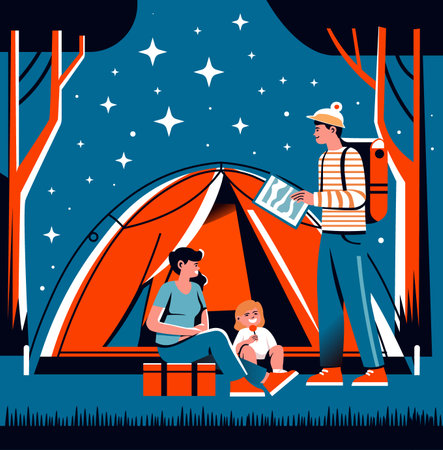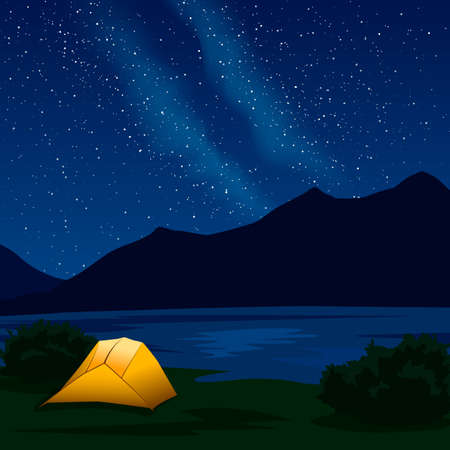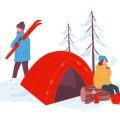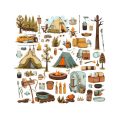1. Understanding Potential Campground Emergencies
When youre out camping, its all about enjoying the great outdoors—but being prepared for the unexpected is just as important as packing your tent. Before you head out, its a good idea to understand the types of emergencies that could happen at a campground. Knowing what to watch for can help you stay safe and react quickly if something goes wrong.
Common Camping Emergencies
Whether youre in a national park or a backcountry site, emergencies can strike with little warning. Heres a breakdown of some common situations campers might face:
| Type of Emergency | Description | Why It Matters |
|---|---|---|
| Severe Weather | Includes thunderstorms, high winds, flash floods, wildfires, and sudden temperature drops. | Weather can change quickly outdoors; being caught unprepared can lead to dangerous conditions or even evacuation. |
| Wildlife Encounters | Involves bears, snakes, raccoons, or other animals entering camp or approaching hikers. | Improper food storage and lack of awareness can attract animals and increase the risk of injury or property damage. |
| Medical Emergencies | Ranging from minor cuts and sprains to allergic reactions or heat stroke. | Lack of immediate medical help means you need to be ready to handle basic first aid on your own. |
| Getting Lost | Straying from trails, unfamiliar terrain, or poor visibility can lead to disorientation. | Losing your way can result in panic, dehydration, or overnight exposure if not addressed quickly. |
The Importance of Risk Assessment Before Your Trip
Planning ahead is more than just picking a campsite—it’s about understanding what risks are specific to your destination. Take time to research the area’s climate, wildlife activity, terrain difficulty, and how remote the location is. Ask yourself questions like:
- Is this area prone to sudden weather changes?
- Are there known bear sightings or other animal risks?
- How far is the nearest medical help?
- Will I have cell service if I need assistance?
The more you know before you go, the better prepared youll be if something unexpected happens. A little planning can make all the difference between a stressful situation and one you’re confident handling.
2. Creating a Comprehensive Emergency Kit
No matter where youre camping — whether its in the desert, deep in the forest, or high up in the mountains — having a well-stocked emergency kit is essential. You never know when unexpected weather, injuries, or equipment failures might occur. A thoughtfully prepared emergency kit can make all the difference in staying safe and getting help quickly.
Must-Have Emergency Supplies for All Campers
Here’s a basic checklist of items every camper should include in their emergency kit:
| Item | Description |
|---|---|
| First-Aid Kit | Include bandages, antiseptics, tweezers, pain relievers, allergy meds, and any personal prescriptions. |
| Multi-Tool or Swiss Army Knife | Useful for repairs, food prep, cutting materials, and more. |
| Weather Radio (NOAA) | A battery-powered or hand-crank radio to receive weather alerts if cell service is unavailable. |
| Backup Communication Device | Consider a satellite phone or GPS messenger for remote areas with no signal. |
| Flashlights & Extra Batteries | Headlamps are great for hands-free use at night or during an emergency. |
| Emergency Blanket | Compact and reflects body heat; ideal for sudden temperature drops. |
| Fire Starters | Waterproof matches, lighters, and fire starters to help you stay warm or cook food. |
| Duct Tape | A quick fix for gear damage, tent tears, and more. |
| Whistle | Helpful for signaling if you’re lost or need help. |
| Map & Compass | If GPS fails, these will help you navigate back to safety. |
Environment-Specific Additions
Desert Camping
- Extra Water: Dehydration is a major risk. Carry more than you think youll need.
- Sunscreen & Shade: Protection from sunburn and heatstroke is critical.
- Aloe Vera Gel: Useful for treating sunburns quickly.
Mountain Camping
- Thermal Layers: Temperatures can drop drastically at night.
- Crampons or Hiking Poles: Helpful on rocky or icy terrain.
- Altitude Sickness Medication: Useful when camping at higher elevations.
Forest Camping
- Insect Repellent: Mosquitoes and ticks are common threats.
- Bear Spray: In areas with known wildlife activity.
- Machete or Hatchet: For clearing brush or gathering wood safely.
Packing Tips
Your emergency supplies should be easily accessible—don’t bury them at the bottom of your backpack. Use waterproof bags to keep items dry and label each section so you can find things quickly. It’s also smart to go through your kit before each trip to replace expired medications and check batteries. Being prepared doesn’t take much time but could save your life out in the wild.

3. Emergency Communication Plans
When youre out camping, especially in remote areas, having a solid emergency communication plan is just as important as packing your tent or food. Cell service can be spotty or non-existent, so its crucial to have other ways to reach help if needed. Here’s how you can prepare:
Share Your Itinerary
Before heading out, make sure someone back home knows your detailed itinerary. This includes where youre going, when you plan to return, and any backup locations you might visit. If something goes wrong and you don’t check in on time, this person can alert authorities.
What to Include in Your Itinerary:
| Information | Details to Provide |
|---|---|
| Campsite Location(s) | Name of campground, GPS coordinates if available |
| Date & Time of Arrival/Departure | Your expected schedule |
| Group Members | Names and emergency contacts for everyone |
| Check-In Times | Schedu led times you’ll update someone at home |
Use GPS Beacons or Satellite Messengers
If youre heading into areas without reliable cell coverage, consider bringing a GPS beacon or satellite messenger. These devices use satellites to send messages, location data, or SOS alerts even when you’re far from civilization.
Popular Devices:
| Device | Main Features |
|---|---|
| Garmin inReach Mini | Two-way texting, GPS tracking, SOS button via satellite |
| Zoleo Satellite Communicator | Email/SMS messaging, SOS alerts, weather updates |
| Spot Gen4 | SOS feature, tracking, basic one-way messaging |
Understand Cellphone Coverage Limits
Your smartphone may not be reliable in the backcountry. Mountains, dense forests, and distance from towers can all kill your signal. Before your trip:
- Check coverage maps: Visit your provider’s website to see if service extends to your campsite.
- Avoid relying solely on phone apps: Download offline maps and save important numbers before losing signal.
- Batteries matter: Bring portable chargers or solar panels to keep devices powered up.
Create a Simple Communication Checklist
| # | Task | Status |
|---|---|---|
| 1 | Email itinerary to trusted contact | ☑ |
| 2 | Packed satellite messenger or beacon device | ☑ |
| 3 | Saved offline maps & emergency numbers on phone | ☑ |
| 4 | Brought extra power sources (battery pack/solar charger) | ☑ |
A well-thought-out communication plan can make all the difference during an emergency while camping. Don’t leave it to chance—plan ahead and stay connected.
4. Basic Survival Skills Every Camper Should Know
When youre out in the wild, far from the comforts of home and cell service, having a few basic survival skills can make all the difference. These essential skills not only help you stay safe but also boost your confidence when facing unexpected situations. Here are five key survival skills every camper should learn before heading into the backcountry.
Fire-Building
Fire provides warmth, light, a way to cook food, and even a signal for help. Practice building a fire using different methods like matches, lighters, or flint and steel. Always carry waterproof matches or a reliable fire starter in your emergency kit. Learn how to gather dry tinder (like bark or dry leaves), kindling (small sticks), and fuel wood to build and maintain your fire safely.
Purifying Water
Drinking untreated water from lakes or streams can lead to serious illness. Always be prepared to purify water before drinking it. Here are some common methods:
| Method | Pros | Cons |
|---|---|---|
| Boiling | Kills most pathogens effectively | Takes time and requires heat source |
| Water Filters | Portable and easy to use | Can clog over time, may not remove viruses |
| Chemical Tablets | Lightweight and long shelf life | Taste may be unpleasant; wait time required |
Basic First Aid
A well-stocked first aid kit is important, but knowing how to use it is even better. Learn how to clean and dress wounds, treat burns, splint sprains or fractures, and recognize signs of hypothermia or heat exhaustion. Taking a basic wilderness first aid class can prepare you for emergencies when professional help is hours away.
Shelter-Building
If you ever find yourself stuck outdoors overnight without your tent, knowing how to build an emergency shelter can keep you warm and dry. Use what’s around you—branches, leaves, rocks—to create a windbreak or lean-to. A tarp or emergency blanket can also be incredibly useful if packed in advance.
Navigation Without GPS
Batteries die and electronics fail. Thats why old-school navigation skills matter. Bring a physical map and compass—and know how to use them. Learn how to identify landmarks, read topographic maps, and estimate distances by pacing or using natural cues like the sun’s position.
By practicing these basic survival skills before your trip, youll be better equipped to handle unexpected challenges while camping. It’s not just about being ready—it’s about being confident in your ability to stay safe outdoors.
5. Reacting Calmly and Effectively in a Crisis
When youre out camping, things dont always go as planned. Sudden weather changes, injuries, or getting lost can turn a peaceful trip into a stressful situation. Staying calm and acting quickly are key to handling emergencies safely.
Stay Calm and Focused
Panic is your worst enemy during an emergency. Take a deep breath and assess the situation before reacting. A clear mind helps you think more logically and make better decisions. If youre with others, speak calmly to keep everyone focused and reduce fear.
Make Quick, Smart Decisions
In any crisis, time matters. Use the S.T.O.P. method:
- S – Stop: Pause and don’t rush into action.
- T – Think: What’s happening? What are your options?
- O – Observe: Look at your surroundings. Is it safe?
- P – Plan: Decide on your next steps based on facts.
Basic First Aid Know-How
You dont need to be a doctor, but knowing how to treat common camping injuries can make all the difference. Heres a quick guide:
| Injury | First Aid Steps |
|---|---|
| Cuts & Scrapes | Clean with water, apply antiseptic, cover with sterile bandage |
| Burns (minor) | Cool with clean water for 10 minutes, cover loosely with gauze |
| Sprains | Rest, ice, compress with bandage, elevate if possible (R.I.C.E.) |
| Bites & Stings | Remove stinger if present, wash area, apply cold pack and antihistamine cream |
Practice Emergency Scenarios
The best way to stay prepared is through practice. Before your trip, run through mock situations like what to do if someone gets lost or injured. Teach kids how to signal for help or use a whistle. Rehearsing builds confidence and muscle memory for real emergencies.
Know When to Evacuate
If a storm is approaching fast or someone has a serious injury that you can’t handle at camp, it’s time to leave. Don’t wait until it’s too late. Always have a backup plan for evacuation routes and know where the nearest hospital or ranger station is located.
Quick Tips for Evacuation Readiness
- Keep your vehicle keys accessible at all times
- Store emergency gear near the exit of your tent or camper
- Have a communication device charged and ready (radio or cell phone)
- Know your exact location so you can describe it in an emergency call
The more prepared you are, the more confidently you can react when something goes wrong out in the wild.


